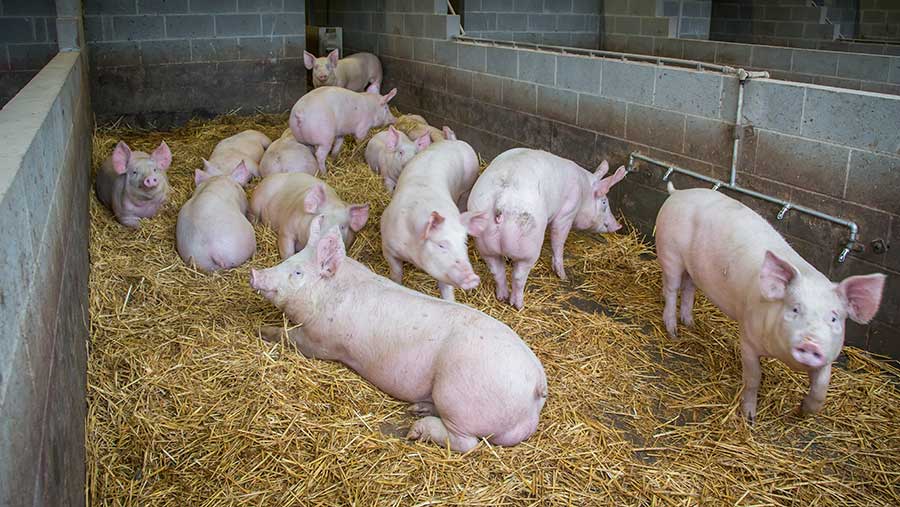Defra responds to 48 recommendations to improve pig sector
 © GNP
© GNP Defra has responded to an extensive list of recommendations relating to the structure and operations of the GB pig industry and current legislation.
AHDB was commissioned by Defra to carry out the review, which made 48 individual recommendations, including changes to livestock movements, electronic tagging and annual registrations.
The government welcomed the recommendations in the report and said much of it was in line with its own ambitions in relation to disease control.
See also: Global pork consumption to rise in 2024 despite fewer sows
It has now responded to each of these recommendations in a policy paper, outlining how the government wishes to move forward and what is being done in these key areas.
Defra has already begun work to deliver recommendations related to raising awareness of biosecurity standards and registration requirements by producing a communications campaign and working with vets.
However, the government response said many of the recommendations require long-term reform that necessitate legislative or structural changes.
It said: “The main ambition of the government is moving pig reporting from eAML2 [Electronic Animal Movement Licensing] to the new multispecies LIS [Livestock Information Service] system and to use the system to record other traceability data.
“This means that a significant portion of the recommendations will take time to deliver as we work towards that new system.”
Nick Allen, chief executive of the British Meat Processors Association (BMPA), said: “The pig supply chain is one of the most complex food supply chains that exists.
“The fact that there are 48 recommendations in there does highlight how complex this issue is, and finding the right solutions is not a simple task.
“It is, however, an endeavour that the whole supply chain should work together on, and we will be looking at the recommendations in detail.”
Katie Jarvis, senior policy advisor at the National Pig Association (NPA) said: “Given the threat that notifiable diseases like African swine fever pose to the national pig herd, it is vital that identification and traceability systems are used to accurately record pig movements.
“The NPA has been a part of the Traceability Design User Group (TDUG) developing the Livestock Information System since its inception, and we hope that the new system for pigs will be a positive outcome for the industry.
“The NPA has long advised that it would be impractical to introduce EID for pigs. It is crucial that the new system does not impact negatively on the way that pig movements are currently recorded.”
A full list of the recommendations and government responses is available on the Defra website.

